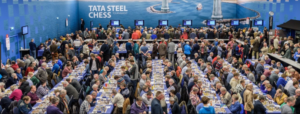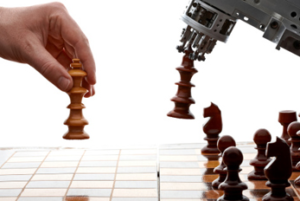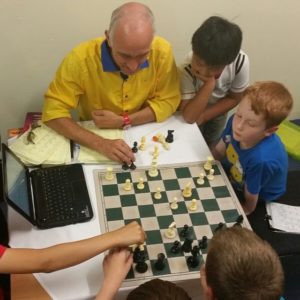Chess is arguably the oldest game still played globally today. And it’s changing more rapidly than ever before. Chess has evolved for thousands of years from early Indian variants, to the modernized strategies of the 18th, 19th and 20th centuries respectively. But chess is not done. In fact, it’s still changing – thanks to computers.
For several decades, computers have exceeded human players in skill due to their incredible calculating ability. The age-old question posed to chess players amateur and professional alike, ‘how many moves can you see ahead?’, can now be answered with reference to the power of your chess engine.
But even computers haven’t ‘solved’ chess yet, with its variations of possible positions extending into the billions (fun fact: there are more variations in a chess game than the number of galaxies). And their ‘brute force’ approach of looking at every single move and every single move in response to that and so on stands in stark contrast to the strategies employed and advocated by most coaches. Coaches and top players alike believe in assessing the position and making calculations, using only a few logical looking moves conjured from experience and intuition. Simply put, we don’t have the ‘engine’ power to calculate if pawn h3 is a good or not move every single game.
But the power of the computer cannot be denied, even if it’s not always logical. A computer is a tool that has ushered in a new era of chess, the computer era, where preparation before the game aided by your infallible digital coach (Stockfish or Komodo or Fritz etc) is increasingly important.
Magnus Carslen, current World Chess Champion, has admitted that the rise of computers has ‘take[n] a bit of the mysticism away. But… we’ve known for a long time that computers are better, so the computer never has been an opponent. It’s a tool to help me analyze and to help me improve at chess.”
For younger players just coming into chess, this increasing dependence on computers is less important in their early years. The reliance on computers should never be allowed to replace the multi-faceted role of a chess coach. A computer will never tell you why a certain move is good or bad (because it doesn’t really ‘know’), and won’t tell you what openings, endings or middle game strategies to practice. And of course, as most parents know, a computer cannot instill practices of good sportspersonship or confidence, either.
Nevertheless, chess computers can provide valuable educational, social and recreational benefits for those who care about bettering their game. Interestingly, man and computer have become one in the app ‘Play Magnus’. Players all over the world can test themselves against a virtual version of the Norwegian world champion Magnus Carlsen at various stages of his chess career, as early as 8 (quite easy to beat), and up to his twenties (for the majority of humans, impossible).
The computer has seen chess change in other ways too, perhaps most importantly the introduction of online competitions. Playing online on websites like Chess.com can be a light afternoon of fun, or for more serious players, a chance to cut their teeth and test out new moves and variations.
Former Australian chess champion, Guy West, has commented on the rise of the internet as a tool of the next generation of chess players, saying, ‘In the part, the advantage of experience has been greater because experienced players would have travelled around the world. Nowadays you can travel around the world via the internet.’
The internet is also a valuable tool when considering the abundance of resources out there, available for free for anyone who cares to listen and has an active connection. Young players are getting world class coaching from contemporary greats like Yasser Seirawan, Daniel King and Roger Svidler, who go through games or play ‘live’ blitz to an enthralled audience.
Chess is a global community and the use of computers and online gaming is only strengthening chess into the 21st century’s global game. On one website, Chess.com, they have reached over 15 million members (more than half of Australia’s population). So what does this mean for budding chess enthusiasts? Well, it means there’s never been a better time in history to get involved in the sport of chess!






